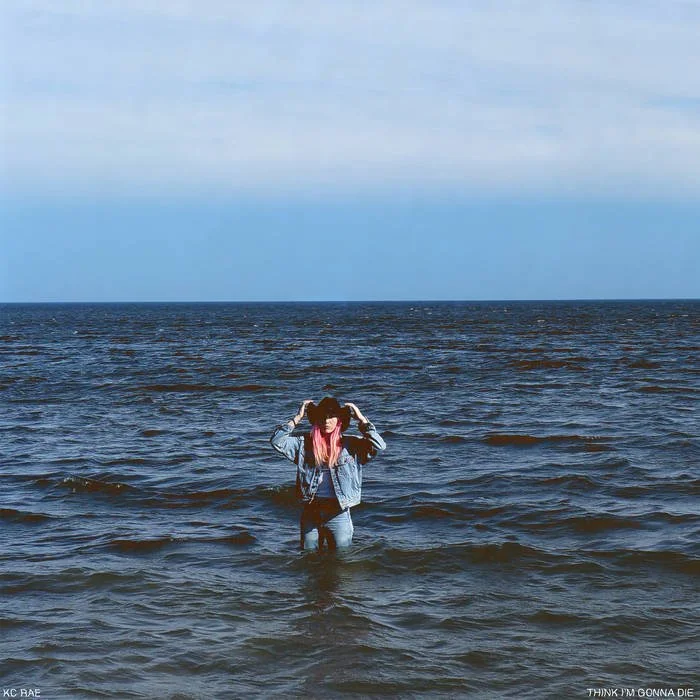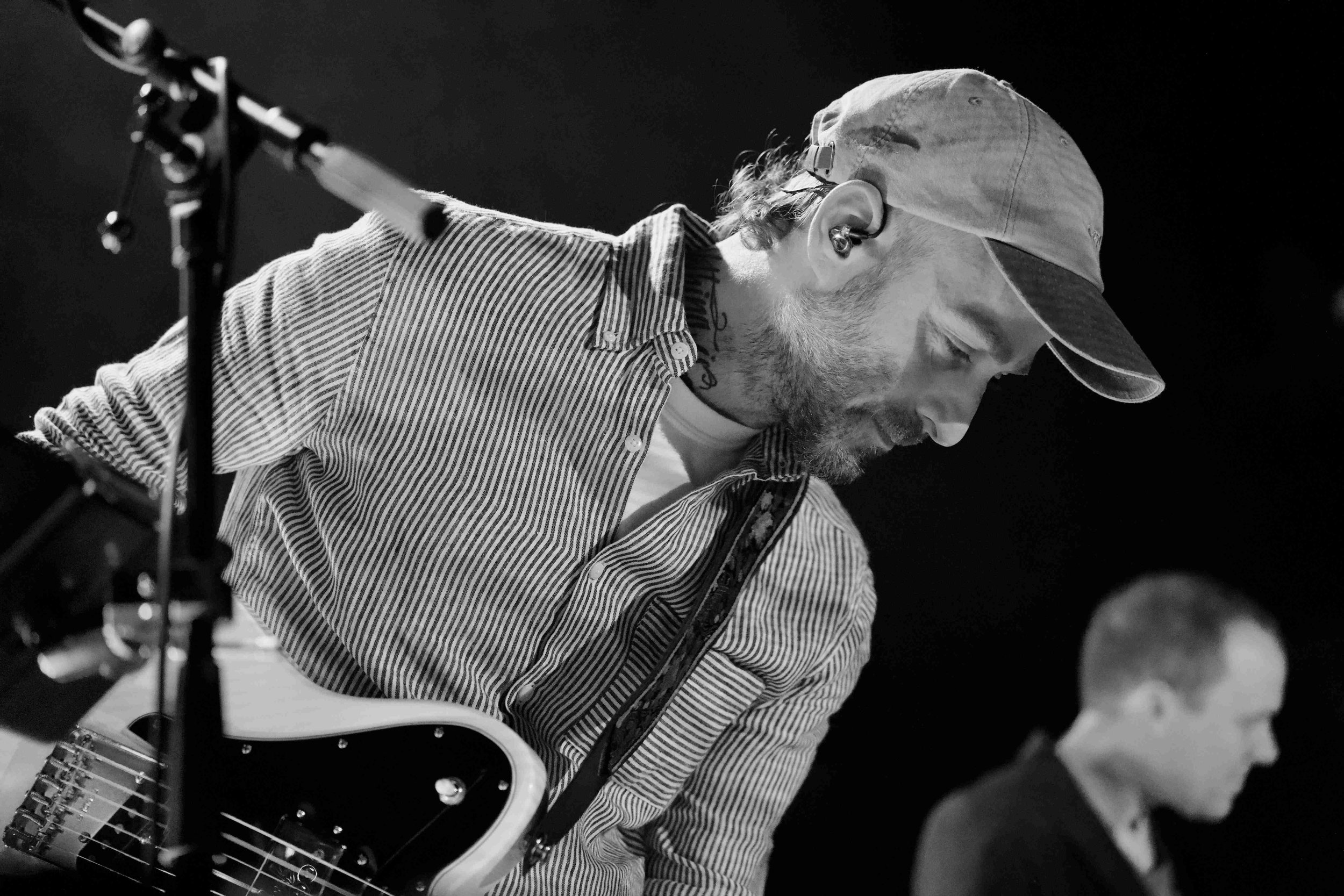Bradley Hathaway - “Mono Tape 5: Lower Your Voice” review
Rather unexpectedly in the last throes of summer, Bradley Hathaway released his latest album, Mono Tape 5: Lower Your Voice. In an age of noise and complexity, Bradley Hathaway continues to create a refreshing reminder of the power of simplicity and authenticity in music.
I first came across Bradley Hathaway in 2009, a few years after All The Hits So Far But Don't Expect Too Much: Poetry, Prose & Other Sundry Items, when he was still touring alongside beloved American noughts bands. An already established spoken word poet, Hathaway was making ripples of change, challenging societal norms with popular poems like “Manly Man” and “The Hug Poem” and shared stories of love through the equally popular “So Do I Love You” or, a personal favourite, “Let Me Be a Lighthouse Shining On the Sea”.
While I’d never forgotten about Bradley Hathaway, the name did slip my mind for many years after I departed the music journalism world. But when starting The Scene, mulling over my collection and the songs tucked deep within my memory, I recalled the thin yet powerful voice that had once stirred something inside me. To my luck and delight, Hathaway released new singles for this record the very same month we launched. Kismet? Divine intervention? You decide.
Mono Tape 5: Lower Your Voice is the latest addition to Hathaway's ongoing ‘Mono Tape’ series. Reading like fragments from a personal journal, the lyrics span musings of his family life, partner, and new child, exploring themes of family love, fatherhood and Hathaways consistent exploration of spirituality and his relationship with God. Hathaways obvious talent for words shines through the quietly crafted body of work that will resonate with anyone seeking raw and honest storytelling.
We don’t know the type of mono tape recorder used, but we can tell by listening that it’s used with the skill and understanding of what truly makes “lo-fi” work. This isn’t your teenage brother with a tapedeck in his bedroom. The purposeful layering builds an atmosphere that at times feels closely intimate, and at other times, hauntingly spacious.
The album opens with "Party With Me," a track that serves as a thematic prelude. Set against the backdrop of simple piano chords, Hathaway poses a seemingly straightforward question: "Do you want to party with me?" But the "party" Hathaway speaks of isn't a raucous celebration. Suggestions that on the surface might seem painstakingly mundane - taking a walk, watching TV, making tea and going to bed – paint a rather intimate portrayal of everyday life with a loved one. Considering the context of the album's cover art - featuring presumably Hatahways own home and pregnant partner - we can assume that the song and entire album will be an intimate look at Hathaways home life. “It would be a dream, sounds like a dream to me.”
The closely intimate sound continues into the second song, “Lovin’ You So Easy”. Moving from what I expect to be an upright piano in the first track to something electric in the second, the air in Hathaways voice and creak of each key being pressed feels like you’re sitting beside him on the piano bench, hearing a song written just for you.
As we move to “Jesus Said He Could Set Us Free” we get our first instance of the haunting soundscape that can only be achieved by someone who knows what they’re doing. We see it again in “Move Me”. In both, the scratching sound of the tape itself serves almost as the rhythm for the piece, surrounding swelling vocals. It’s as though we’re sitting in an empty house, filled with that unnerving sound that only appears in the absence of all other noise.
Beyond technical ability, Mono Tape 5 is yet another example of Hathaways skill with honest storytelling. As with much of his music, each piece reads like a poem or journal entry, containing form but freed from common structures. Evoking a bygone era of country and folk, and the introspective storytelling style of outlaw country, Hathaway describes with uncommon simplicity a series of experiences and situations that feel singularly familiar.
Possibly the best example of Hathaways authenticity comes in the song “I Used to Sleep Like A Baby”, also the longest track on the album. Enriched by an atmospheric electric guitar played, Hathaway layers over simple acoustic picking, creating a dreamy space between wakefulness and slumber. Narrating the simple act of waking up at night and feeling restless, he counts titties instead of sheep, walks outside to look at the stars, pets the dog and returns to bed knowing he’ll likely have a headache in the morning. It’s a style I would normally detest from any other writer, but Hathaways choices to combine a simplistic structure with conversational language and musings of something bigger than us, over that dreamy soundscape, is simultaneously romantic and comforting. You’re not the only one who walks outside in the deepest night, unable to sleep, hoping to see a shooting star.
Ultimately, this album and the whole Mono Tape series is an unpretentious, honest artistic creation. Every piece is skillfully considered, placing the right components at the focal point of each track. It’s an incredible example of something we hear a lot but so few can truly achieve: simple is hard to do, and do well.
I can only end by saying that I urge every reader to listen to, and buy, this work. Along with every other piece Bradley Hathaway has released and will release. And in consistent Hathaway fashion, a book is coming sometime this spring.
Mono Tape 5: Lower Your Voice from Bradley Hathaway is available now on Bandcamp, joining Mono Tape 4: Nightshade EP (2021), Mono Tape 3: Moan White Man Moan EP (2021), Mono Tape 2: Numb Drum EP (2021) and Mono Tape 1: Memaw extended single (2021).






































